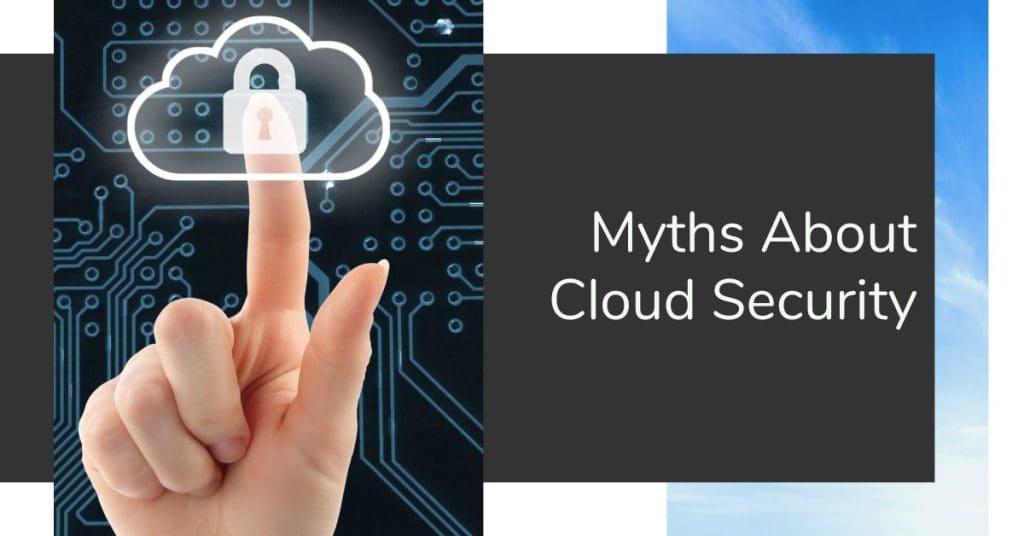Myths About Cloud Security

In many situations in life, assuming before verifying can get you into a lot of trouble. This is especially true when it comes to cloud security. Too often, businesses owners assume their cloud service comes with security built in. They don’t bother to check that their data is truly backed up and secure.
Cloud solutions are often the best choice because an offsite backup and recovery ensures your data is safe if a disaster like a fire, lightning or strong winds strikes. When you purchase a cloud solution you are solely paying for the storage itself. There are no automatic and consistent backups included. To verify whether your cloud solution includes backups, you need to review your cloud service agreement. Your data is exposed without backups no matter if your solution is private, public or hybrid.
Types of Cloud Solutions
Private: Private cloud services and solutions are not shared with anyone. You get the whole filing cabinet to yourself. The only downside to private cloud solutions is that they typically cost more than public.
Public: With public cloud solutions you share a designated space on a server with other companies. You get one drawer of the filing cabinet while another company gets the other drawer but only you can access your drawer with your key.
Hybrid: Hybrid solutions are of course a mix of the two. Sensitive information, files and data is kept in a private cloud while generic, day-to-day files are on a public cloud. Cost wise, this would be the best option for someone looking to have some private storage.
Cloud Service Agreements
When reviewing your cloud service agreement for cloud security and backup measures there are a few specific things you’ll want to note:
- How often backups are run (how many times per day and what time)
- How long data is stored for
- Where the data backups are stored (on a private, public or hybrid cloud)
Compliance and Cloud Security
If you work with a government organization it’s likely you are required to follow some kind of compliance protocol when it comes to storing files. You may be required to use a government-controlled cloud solution called Federal Risk Authorization Program (FedRamp). Microsoft Azure has options for a FedRamp cloud and non-FedRamp cloud.
Feeling a bit overwhelmed with cloud security? Don’t worry, we’ve got you covered. Schedule a meeting with us to discuss your data backup and needs and we’ll help you choose the cloud solution right for you.
